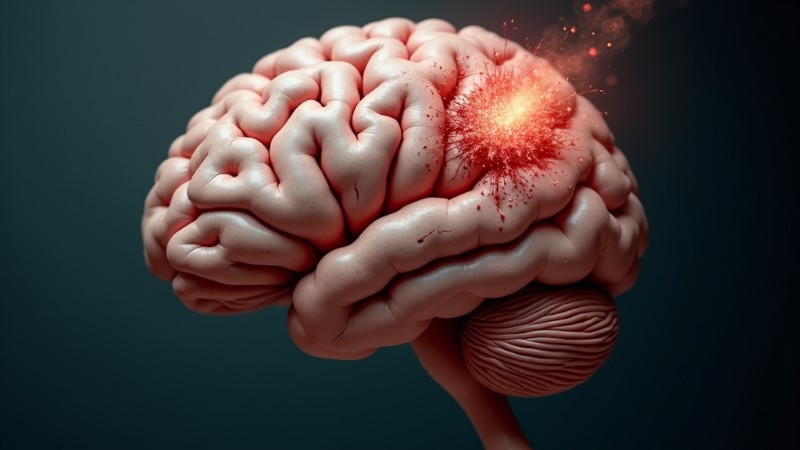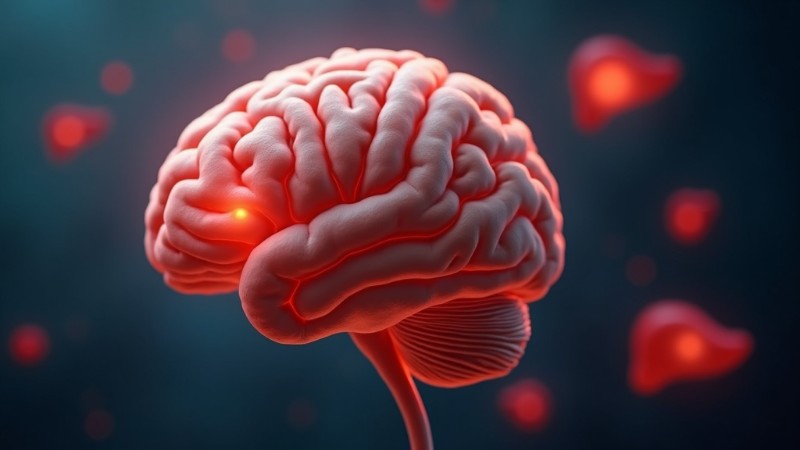Recent studies emphasize the strong connection between hypertension and dementia, suggesting that managing blood pressure can be essential in reducing the risk of cognitive decline as we age.
Researchers from various global studies, including those in the United States and Australia, indicate that hypertension, especially when left untreated, can significantly increase the risk of both Alzheimer’s disease and other types of dementia. Individuals can take crucial steps toward preserving their cognitive health by better understanding hypertension’s impact on brain health and adopting preventive measures.
Key Takeaways
Managing blood pressure can be essential in reducing the risk of dementia as we age.
- Hypertension significantly increases the risk of both Alzheimer’s disease and other types of dementia, especially when left untreated.
- Regular physical activity, a healthy diet, and medication can help manage blood pressure and reduce dementia risk.
- Early intervention and long-term management are crucial in preventing cognitive decline associated with hypertension.
Hypertension’s impact on brain function
Hypertension affects nearly half of American adults and is a common, yet preventable, risk factor for dementia. Often referred to as a “silent killer” due to its lack of symptoms, high blood pressure can significantly impact brain health. It forces the heart to work harder, limiting blood flow to essential organs, including the brain.
Over time, this restriction can lead to cognitive decline. Studies indicate that hypertension disrupts the brain’s autoregulatory mechanisms, which normally maintain steady blood flow.
When these systems fail, blood vessels weaken, and the brain struggles to receive adequate oxygen and nutrients. Research published in Neurology shows that untreated hypertension in individuals over 60 can increase the risk of non-Alzheimer’s dementia by 68% and Alzheimer’s disease by 36%.
Dr. Matthew Lennon, a leading researcher from Sydney’s St. Vincent’s Hospital, emphasizes that managing blood pressure, even in advanced age, is crucial for protecting cognitive function. “Our findings suggest a strong benefit in controlling blood pressure for brain health,” Lennon stated, underscoring the importance of early intervention and long-term management.
How hypertension harms the brain
The brain suffers in several ways due to high blood pressure. It diminishes blood flow, which impairs the delivery of essential nutrients and oxygen, potentially resulting in brain atrophy, particularly in memory-critical regions such as the hippocampus.
Dr. Silvia Fossati, a neuroscience professor and Alzheimer’s expert at Temple University, explains that high blood pressure also hinders the brain’s ability to eliminate waste products, such as amyloid beta, associated with Alzheimer’s disease. “Hypertension makes it challenging for the brain to clear waste, leading to harmful accumulation that strains the vascular system,” Fossati noted. This buildup, along with reduced blood flow, creates a “vicious cycle” that accelerates cognitive decline.
Moreover, hypertension weakens the blood-brain barrier, which protects the brain from toxins and pathogens. When compromised, harmful substances can enter brain tissue, causing neuroinflammation linked to various types of dementia. This cumulative damage affects the entire brain but particularly impacts regions like the hippocampus, resulting in faster atrophy and cognitive decline.
Key risk factors for hypertension
Blood pressure is influenced by age, diet, inactivity, and genetics. A high-salt diet raises blood pressure by increasing fluid retention and blood volume. Sedentary lifestyles worsen the issue, as exercise is crucial for maintaining healthy blood pressure and vascular health. Additional risk factors include obesity, smoking, and diabetes, which can further impact hypertension’s effects on the brain.
The American Heart Association defines hypertension as a systolic pressure above 130 mmHg or a diastolic pressure exceeding 80 mmHg. Often asymptomatic, persistent high blood pressure can go unnoticed until severe symptoms like headaches, blurred vision, or chest pain occur. These symptoms indicate the need for immediate medical attention, as undiagnosed hypertension can silently harm the brain and other organs.
Why midlife hypertension is particularly dangerous
Studies, including the 2024 Lancet Commission report on dementia, indicate that hypertension during midlife has the strongest association with later cognitive decline. Midlife hypertension is a key predictor of cognitive impairment, affecting areas like memory, processing speed, and executive functions.
This is particularly concerning because midlife is often when lifestyle habits—both positive and negative—are established. Long-term hypertension puts strain on the vasculature and weakens brain tissue, increasing the risk of dementia decades later.
Dr. Ana Daugherty, an aging and dementia researcher at Wayne State University, advises that individuals prioritize their heart health as early as possible to prevent cognitive issues later in life. “If there’s one thing to do today for better cognitive outcomes at 80 or 90, it’s to take care of your heart health,” she noted, adding that prevention is key to reducing brain aging and associated cognitive decline.
How to manage hypertension for brain health
Staying physically active: Regular physical activity effectively reduces hypertension and supports brain health. Exercise enhances circulation, strengthens the cardiovascular system, and lowers blood pressure, all of which are beneficial for cognitive function. Even moderate activities like walking, gardening, or yoga can help decrease dementia risk. For quicker results, isometric exercises such as wall sits are particularly effective at lowering blood pressure.
Additionally, physical activity promotes the release of brain-derived neurotrophic factor (BDNF), a protein crucial for brain plasticity that helps maintain cognitive function as we age. The benefits of exercise go beyond blood pressure control, enhancing mental agility and lowering the risk of chronic conditions.
Diet and nutrition: A healthy diet is essential for managing blood pressure. Reducing salt intake can decrease fluid retention, easing strain on blood vessels. The DASH (Dietary Approaches to Stop Hypertension) diet, which emphasizes fruits, vegetables, whole grains, and low-fat dairy, is highly recommended. Foods rich in potassium, magnesium, and calcium also promote heart health, benefiting those with hypertension.
Steering clear of processed foods, which often contain excess salt and unhealthy fats, can further lower hypertension risk. Combining a balanced diet with regular physical activity is key to supporting both heart and brain health.
Medication’s role in dementia risk
For individuals with diagnosed hypertension, medication is often necessary to keep blood pressure within safe limits. Antihypertensive drugs have been shown to decrease the risk of cognitive decline and dementia, particularly when started early and maintained consistently.
A meta-analysis of multiple studies found that people who took antihypertensive medications had lower rates of cognitive impairment and Alzheimer’s disease than those who did not. Dr. Lennon highlights that managing blood pressure with medications continues to be beneficial even for older individuals, helping to prevent further cognitive deterioration.
Monitoring and regular checkups
Routine blood pressure checks are vital for early intervention and long-term management. Hypertension can vary depending on factors like stress, sleep, and physical condition, so consistent monitoring is essential to ensure blood pressure remains within healthy ranges. If left unchecked, high blood pressure can damage organs gradually, making early detection through regular monitoring a critical preventive measure.
Blood pressure monitoring devices are widely available, allowing individuals to track their levels at home. However, regular visits to healthcare providers remain important, especially for those at higher risk due to factors like family history or pre-existing conditions like diabetes.
Lifestyle changes for long-term benefits
Managing hypertension requires a holistic approach that combines medication with lifestyle adjustments. Incorporating activities that lower stress, such as mindfulness and yoga, can help in keeping blood pressure in check. Small changes, like reducing caffeine intake and avoiding smoking, also contribute to long-term brain health. By making these adjustments, individuals can create a sustainable path to reduce dementia risk while improving overall health.
The need for early intervention and management
While researchers continue to study the exact mechanisms by which hypertension accelerates dementia, the consensus is clear: managing blood pressure is essential to maintaining cognitive function as we age. Hypertension impacts blood flow, oxygen delivery, and waste clearance in the brain, creating a toxic environment that accelerates cognitive decline.
By adopting preventive measures like exercise, dietary adjustments, and regular medical checkups, individuals can reduce their risk of dementia and improve their quality of life.
Recent findings highlight the importance of early intervention. Establishing healthy habits in midlife or earlier is crucial in combating cognitive challenges associated with aging. As research reveals more about the connection between heart and brain health, it becomes clear that caring for your heart is vital for protecting your mind.














